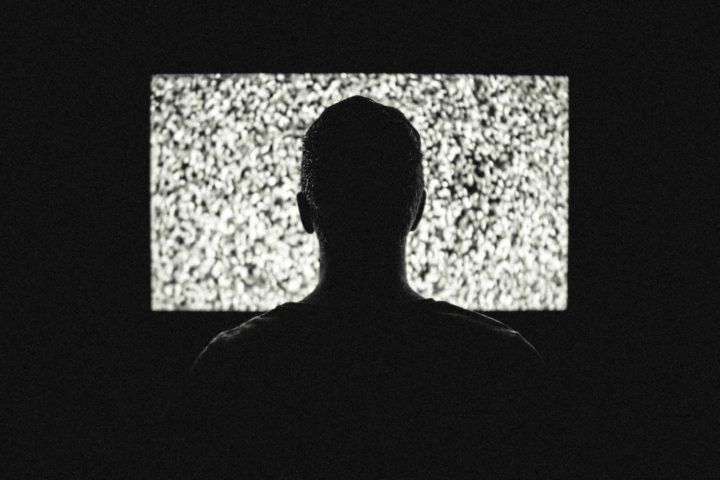How comes that people talk about making changes in their lives and yet find themselves stuck in unhealthy habits that no longer serve them?
They want to drop them once and for all, but still find themselves always coming back to the old routines.
What is this, who came up with that great idea?!
A lot of people find themselves having struggles with establishing habits that support them, or letting go of habits that no longer serve them. Find out why you should immediately start to rule over your habits or they will rule you!
Why can’t I drop my bad habits?
So when habits are there to help you, why is it that they kind of backfire when you take on “bad” habits and you cannot drop them anymore? Basically your brain does not know what a good or a bad habit is. It knows very little actually.
It just tries to save energy. Whenever you do something for a certain period of time, your brain realizes that this is something it could save energy by putting some parts of the processes into an automatic routine.
If you learn for example a new sport every movement is absolutely conscious and therefore requires a lot of focused thought.
By repetition your brain sees patterns and creates little shortcuts in your neurons to better fulfill the same movements and actions again and again.
The more often you do something the better this shortcut tends to become (this is a very basic explanation but it should just illustrate a point here).
This is the reason why some veeeery old habits are so hard to break. Your brain spends so much time to create these super effective and super fast shortcuts to “help” you.
The routines are just too automatic. This is also the reason why people with some addictions oftentimes fall back to their routines. Gamblers find themselves drawn towards the next slot machine or casino, smoker just always come back to smoking, although they tell themselves that they want to change.
To break out of this “habit loop” you have to look at the underlying pattern. If you look at some of your daily routines you will find that they all have something in common. With every habit there is always a trigger, an action and a result. The trigger tells your brain when to use the habit. It can be anything from being in a certain emotional state, a smell, a daytime, etc. Whenever your brain recognizes some of the learned triggers it will start the action associated with it. The action hopefully ends with the desired result, which again can be anything from a specific feeling, some kind of accomplishment, a physical stimulation or anything else you value enough.
A Habit Loop?
So how do we break out of such a circle? Or even better: how can we create some habits that actually benefit us instead of harming us?
To use this idea of habits to your advantage and get in an upward spiral of good and automatic routines in your life you have to start somewhere, but as long as old habits work against you it will require a lot of conscious and pushing action from your part to break out of it. You cannot just simply remove the old habit since you will miss the feeling of accomplishment you connected to that behaviour. This is why people are coming back. For example they stop smoking but do not replace it with something different. They just stop and now they feel this huge gap of not having the stimulus they usually have. And of course they go back to smoking again.
The trick is to replace the action of the habit loop (remember we have a trigger, an action and a result) to something different but leave the other two parts intact.
Whenever you feel to urge to do something you define as a bad habit (the trigger), recognize it. This is the first step. If you find yourself eating unhealthy food, just make yourself conscious about it.
Watch yourself for several days and do nothing but writing everything down you do when you fall into that bad habit. For example right before you eat the chocolate you tell yourself you don’t want to eat anymore, write down how you feel at that very moment. Write down where you are, and what you are thinking. Are you alone, or are you with somebody? Just write it down, you don’t even have to change anything yet. This process alone will help you to recognize your patterns. And this is the first step to change bad habits into something more healthy and more helpful.
Want to read more about habit loops? Check out The Power of Habit: Why We Do What We Do in Life and Business by Charles Duhigg. He writes about it in great detail.
You should NOT change your habits! Not like you think you should do.
Once you know your triggers you can exchange the action associated with it. You have to find something for yourself that offers you an equal level of satisfaction or feeling of fulfillment after doing it, or you will always fall back to your default habit. Without a clear vision and an equal feeling of satisfaction changing habits is impossible for you.
A lot of people find it in meditation, working out, running, etc. But a lot of people are also very emotionally driven. For them it helps to visualize how it might feel when they stop eating that junk food and some friends maybe recognize their slim body and compliment them on it. I usually work with the opposite. When I stopped eating junk food and was changing my life to a healthier diet and lifestyle, I visualized myself (in GREAT detail) what I am actually putting in my body with this food. I went so far, that it actually disgusts me to eat at McDonald’s or any other junk food place, because for me it feels like putting poison in my body.
Switching out the action of having the easy, fast and tasty burger to something healthy and light was no longer a tough decision.
Once you are at that point, it actually feels like the only option. And the satisfaction stays the same (it is actually even better) and that is the reason why there is no falling back to the old toxic habit.
For me that super tasty burger and the feeling I have while eating is in NO relation to the feeling I get from eating a clean and healthy diet, being in shape, looking good, feeling strong, my brain working properly and being sharp minded. It almost feels like a decision between short-term stimulus or long-term satisfaction.
And once you see the big picture and commit yourself to be in for the long run, you have already won.




